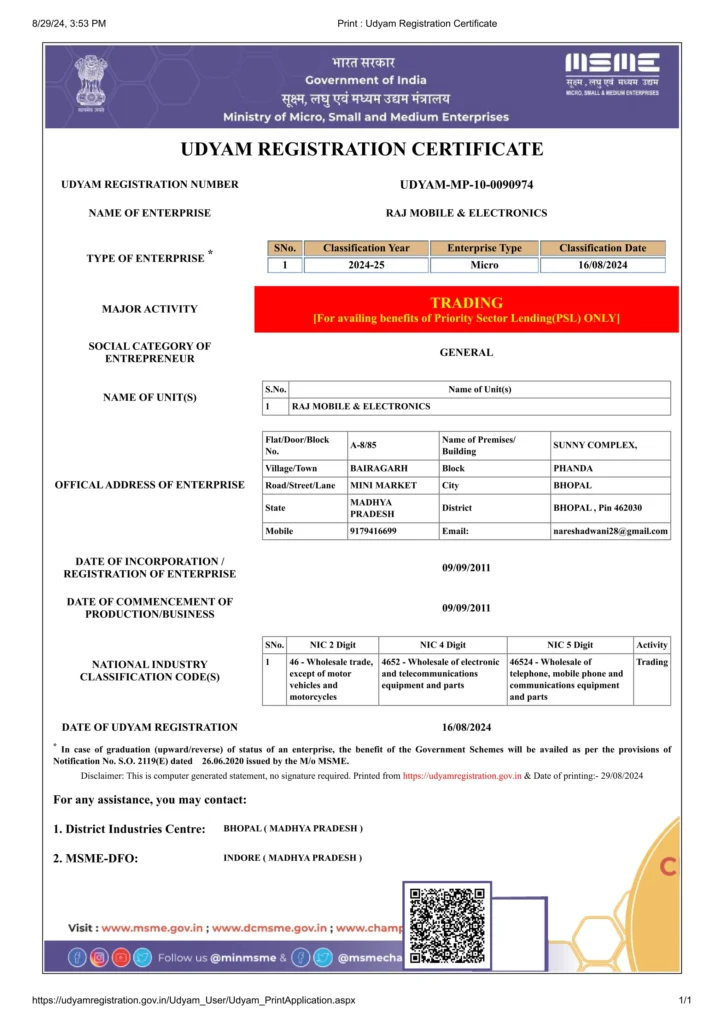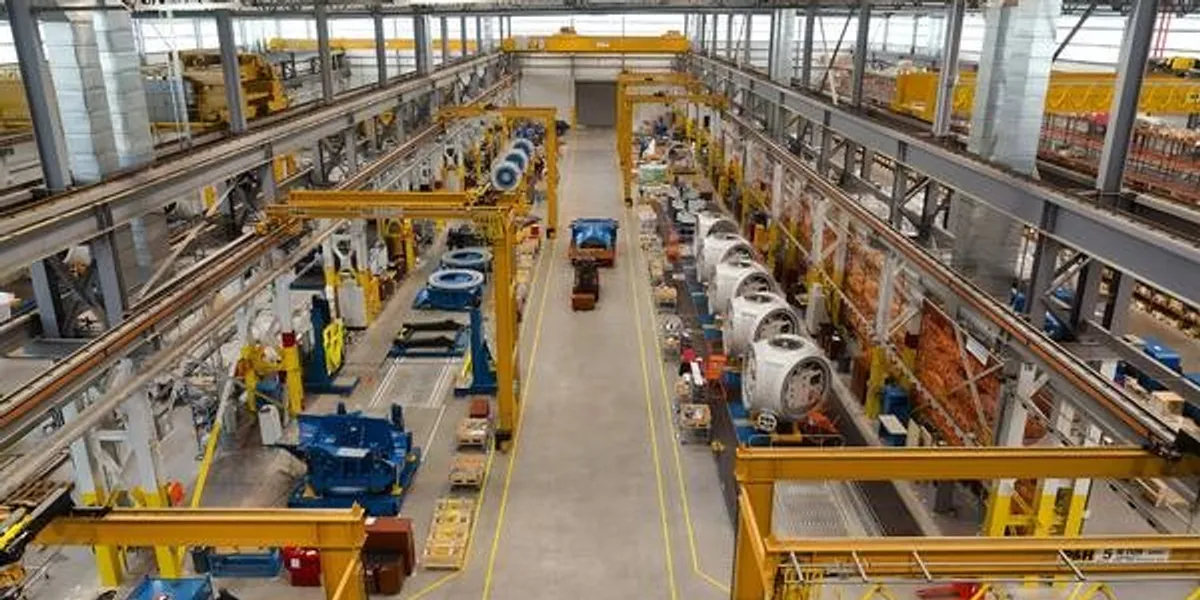India’s manufacturing industry is one of the fastest-growing sectors in the world, driven by government initiatives like Make in India, Startup India, and PLI (Production-Linked Incentive) schemes. With rising domestic demand and export opportunities, this is the perfect time to start your own manufacturing business.
Whether you plan to manufacture wood polish, steel products, garments, or electronics — the fundamentals of setting up, branding, and marketing remain the same. In this detailed guide, we’ll explore how to start a manufacturing business, the necessary documents, and how branding and digital marketing play a key role in long-term success.
1. Understanding the Manufacturing Business Landscape in India
Manufacturing involves converting raw materials into finished goods using machinery, labor, and technical know-how. The sector contributes over 17% to India’s GDP and employs millions.
Before you begin, identify your niche and scale:
- Small-scale (MSME): Example — furniture, kitchenware, handicrafts.
- Medium-scale: Paints, electrical parts, garments, or chemical products.
- Large-scale: Automotive, pharmaceuticals, or industrial equipment.
Choose your business category based on your budget, experience, and local demand.
2. Legal Requirements and Documents Needed
Starting a manufacturing unit requires multiple registrations and compliance steps. Here’s a checklist of what you’ll need:
A. Business Registration
- Register as Proprietorship, LLP, or Private Limited Company under the Ministry of Corporate Affairs (MCA).
- Obtain a PAN Card and TAN for tax purposes.
B. GST Registration

Mandatory for all businesses selling goods and services in India. This enables you to issue tax invoices and claim input credit.
C. Udyam Registration (MSME)

If your investment is under ₹50 crore and turnover under ₹250 crore, register as an MSME to access government subsidies, loans, and incentives.
D. Factory License & Pollution Control NOC
- Apply for a Factory License under the Factories Act, 1948.
- Obtain a Pollution Control NOC from the State Pollution Control Board (SPCB).
E. Other Important Documents
- Trade License from your local municipal body
- Electricity and Fire Department Clearance
- Import-Export Code (IEC) if you plan to export goods
- Employee Provident Fund (EPF) and ESI Registration if hiring staff
Getting these right ensures your business operates legally and builds trust with buyers, distributors, and investors.
3. Choosing Location, Machinery, and Team
Selecting the right location can make or break your manufacturing venture.
- Industrial Area Benefits: Subsidized land, easy logistics, and utility support.
- Machinery & Equipment: Invest in reliable technology—avoid low-cost options that affect production quality.
- Skilled Workforce: Hire experienced operators and technicians. Training programs are available under Skill India initiatives.
Remember, consistency in quality and delivery is key to client retention and business growth.
4. Branding: Your Identity in the Market
In manufacturing, branding isn’t just for packaging — it’s about reputation, trust, and recall.
Your brand identity tells customers what you stand for: reliability, quality, or innovation. A well-established brand attracts distributors, suppliers, and even export buyers.
At Picasso Multimedia, we’ve helped several manufacturing brands like wood polish makers, furniture manufacturers, and small industrial units build a strong market identity through logo design, packaging, website creation, and brand storytelling.
A few branding essentials:
- Logo & Packaging: Create memorable, industry-appropriate designs.
- Brand Voice: Highlight your product’s USP (e.g., eco-friendly, durable, affordable).
- Consistent Visuals: Use the same tone and color theme across social media, catalogues, and brochures.
A professional-looking brand immediately builds credibility and attracts long-term clients.
5. Marketing: How to Reach Buyers and Dealers
Traditional marketing still matters in manufacturing — but digital marketing has become the biggest growth lever.
Let’s break it down:
A. Offline Marketing
- Attend industry expos, trade fairs, and local B2B meets.
- Build relationships with distributors, retailers, and wholesalers.
- Offer free samples or trial consignments to win trust.
B. Online (Digital) Marketing
Digital platforms help manufacturers reach clients far beyond their local area. Whether you sell B2B or B2C, digital visibility matters.
At Picasso Multimedia, we specialize in digital marketing for manufacturing businesses, helping brands reach nationwide audiences through:
1. Website & SEO:
Your website is your 24×7 sales agent.
- Showcase your products, certifications, and testimonials.
- Add an inquiry form or WhatsApp button.
- Optimize for keywords like “wood polish manufacturer in India” or “industrial tools supplier in Delhi.”
2. Social Media Marketing:
Platforms like LinkedIn, Instagram, and Facebook help manufacturers showcase operations and connect with buyers.
- Share behind-the-scenes factory videos, success stories, and product demos.
- Highlight your certifications and quality process.
3. Paid Ads (Google & Meta):
Run targeted ad campaigns for distributors, retailers, or B2B buyers. For example:
“Looking for reliable paint manufacturers in India? Contact us today.”
4. Content & Video Marketing:
Publish blogs like “How to Choose the Right Paint for Industrial Use” or “Top Wood Finishes for Furniture Export.”
These build trust and organic traffic over time.
5. Email & WhatsApp Marketing:
Send product updates, price lists, and seasonal offers to existing clients. Automated follow-ups can increase conversion rates by 30–40%.
6. How to Grow a Manufacturing Business
Once your setup is running, focus on scaling smartly.
1. Quality First: Never compromise on product consistency. Certifications like ISO 9001 enhance credibility.
2. Process Automation: Use ERP and inventory management systems to save costs.
3. Diversify: Introduce new product lines based on market trends.
4. Export Opportunities: Apply for DGFT schemes and tie up with global traders.
5. Build a Strong Distributor Network: Regularly incentivize and train partners.
6. Invest in Marketing: Continue digital campaigns, especially SEO and paid ads, to generate consistent leads.
At Picasso Multimedia, we help manufacturers move from offline dependency to digital-first growth — combining website optimization, brand building, and online lead generation.
7. Common Challenges and Smart Solutions
| Challenge | Solution |
|---|---|
| High setup cost | Apply for MSME loans or government subsidies |
| Low visibility | Invest in SEO, social media, and branding |
| Untrained labor | Conduct regular training & skill sessions |
| Low client retention | Offer consistent quality and fast communication |
| Lack of marketing expertise | Partner with a professional agency like Picasso Multimedia |
Conclusion
Starting a manufacturing business in India is a rewarding venture, but success depends on strong foundations, a clear brand identity, and modern marketing strategies.
From getting the right documents and licenses to creating a powerful brand presence — each step shapes your credibility in the competitive market.
And in today’s digital-first era, marketing isn’t optional — it’s essential.
If you’re planning to launch or grow your manufacturing brand, connect with Picasso Multimedia — a trusted digital marketing partner for manufacturing businesses. We help you go beyond production and build a powerful, visible, and profitable brand online.


